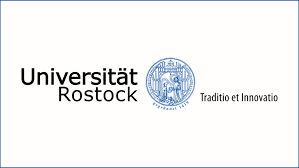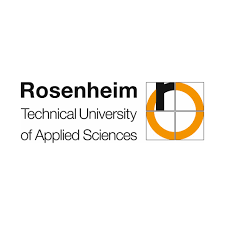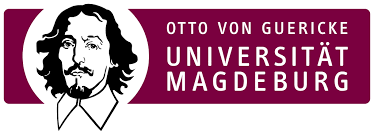You’re using the old Program Database. The new StudyBuddy Database is live with updated courses and a wishlist to save your programs.
Step 1 - Find your Study Program

University of Trier
Trier
Interdisciplinary Engineering
Subjects: Engineering
M.Sc. | Master of Science
Course description
The networking of disciplines is crucial for generating new knowledge in science and research. Many applications would be impossible without the close cooperation of different fields. This is increasingly true in business and industry. By combining various types of knowledge and ways of thinking, and by leveraging synergy effects, we can achieve high levels of innovation and gain a competitive edge. Thinking outside the box is essential! The "Master of Science - Interdisciplinary Engineering" degree program addresses this need. It trains experts to integrate existing and new specialist knowledge in complex, cross-disciplinary contexts. The curriculum includes subjects from electrical engineering, mechanical and automotive engineering, technical building services, industrial engineering, and medical engineering. These are complemented by interdisciplinary team projects and seminars that enhance methodical and social competence, as well as analytical skills. Students will also have the chance to earn a double degree from Trier University of Applied Sciences and a partner university abroad. This equips graduates with the tools needed to excel in innovative interface areas. The program offers excellent career opportunities in business and research and qualifies graduates for doctoral studies.
Program Information
| Study Location | Trier |
| Start Semester | Summer, Winter |
| Study Form | Full-time |
| Study Type | Postgraduate |
| Teaching Language | English |
| Dual | No |
| Remote | No |
| Application Fee non-EU | 50 EUR |
| Study Length | 3 Semesters |
| Tuition Fees per Semester | No Tuition Fee |
| Cost per Semester | 345 EUR |
Step 2 - Check Application Requirements
Application Requirements
Language Requirements
| CEFR | C1 |
| IELTS | No information |
| Cambridge (CAE) | No information |
| TOEFL IBT | No information |
Applicants for the degree programme Interdisciplinary Engineering with English as the language of instruction must provide evidence of language skills in German and English by at least one of the following qualifications for English language skills: Abitur certificate (advanced course with at least 10 out of 15 points in the average of the last two school years, the Abitur grade also counts) Abitur certificate (basic course with at least 12 out of 15 points in the average of the last two school years) TOEFL (Test of English as a Foreign Language) (minimum 75 points internet based) Cambridge C1 Advanced (at least 170 points) or Cambridge Certificate of Proficiency in English (CPE) “IELTS (International English Language Testing System) at least overall band score 6.0 points" TELC (The European Language Certificates) at least C1 level Acquisition of a university entrance qualification in English Completion of a bachelor's degree programme in English Recognition of proof of English language proficiency at the partner university in the case of a double-degree programme Proof of language proficiency in German is provided by at least one of the following qualifications: Goethe-Zertifikat B1 Zertifikat Deutsch / telc Deutsch B1 TestDaF TDN 3 UNIcert I DaF Deutsches Sprachdiplom (DSD) of the Conference of Ministers of Education and Cultural Affairs - First Level (DSD I) with B1 in all areas) DSH B1 Completion of a Bachelor's degree programme in German
Qualification Requirements
The Master's programme "Interdisciplinary Engineering" is open to applicants who prove a first professional university degree with an overall mark of usually at least 2.5. The subject orientation of the first university degree must contain essential contents of a degree programme in electrical engineering, mechanical engineering, automotive engineering, technical building services, industrial engineering or medical engineering. Usually the core discipline is identical to the subject orientation of the first professional university degree. Applicants with a first professional university degree with less than 210 ECTS (e.g. six-semester Bachelor's programme) who wish to enrol in a Master's degree programme with 90 ECTS have the option of taking additional credits at the latest by the time of registration of the Master's thesis in order to achieve the 300 ECTS required for a Master's degree. For this purpose, suitable Bachelor's and Master's modules ("bridge modules") are defined in a catalogue of additional credits. You can get an overview of these modules and your personal selection with the "Module-Choice-Tool". Applicants for the degree programme Interdisciplinary Engineering with English as the language of instruction must also provide evidence of language skills in English and German
Application Process
| Acceptance Interview | No |
| Acceptance local admission restrictions | Not restricted |
| Application |
directly at the University, uni-assist |
Step 3 - Get studying insights
Your Free StudyBuddy Checklist
Making your move to Germany easy
-
Simplified step-by-step Checklist
-
Track progress and complete tasks on the go
-
Direct access to webinars and resources
-1.png?width=1179&height=1764&name=image%20(6)-1.png)

Free Live Webinar
How to Study in Germany for Free
Get ready to study in Germany!
March 18th, 2026
-
Learn how to find your ideal program
-
Step-by-step application guide
-
Tips and tricks to get admission
Step 4 – Apply for a Visa

German Visa Guide
Your tailored German visa application guide
Be Prepared for Your Visa Appointment
Value Package
-
GERMAN BLOCKED ACCOUNT
-
Accepted by all German authorities
-
Instant blocked amount confirmation once funds are received
-
TRAVEL HEALTH INSURANCE / INCOMING INSURANCE
-
Free coverage worth up to €953. Mandatory for your visa
-
GERMAN HEALTH INSURANCE
-
Award-winning, affordable Public or Private cover for visa, university, and life in Germany4
-
Up to €90 cashback with your personalized insurance2
-
FREE GERMAN BANK ACCOUNT
-
Instant access to monthly payouts + automatically connected to your Blocked Account
-
Free digital bank card ready to use worldwide. Apple + Google Pay.
-
ADDITIONAL FREE BENEFITS
-
Free International Student ID Card (digital) with thousands of discounts1
-
In-app accommodation access
-
COST BREAKDOWN
-
Monthly fee: Only €5
-
Blocked Account set-up fee: €89








